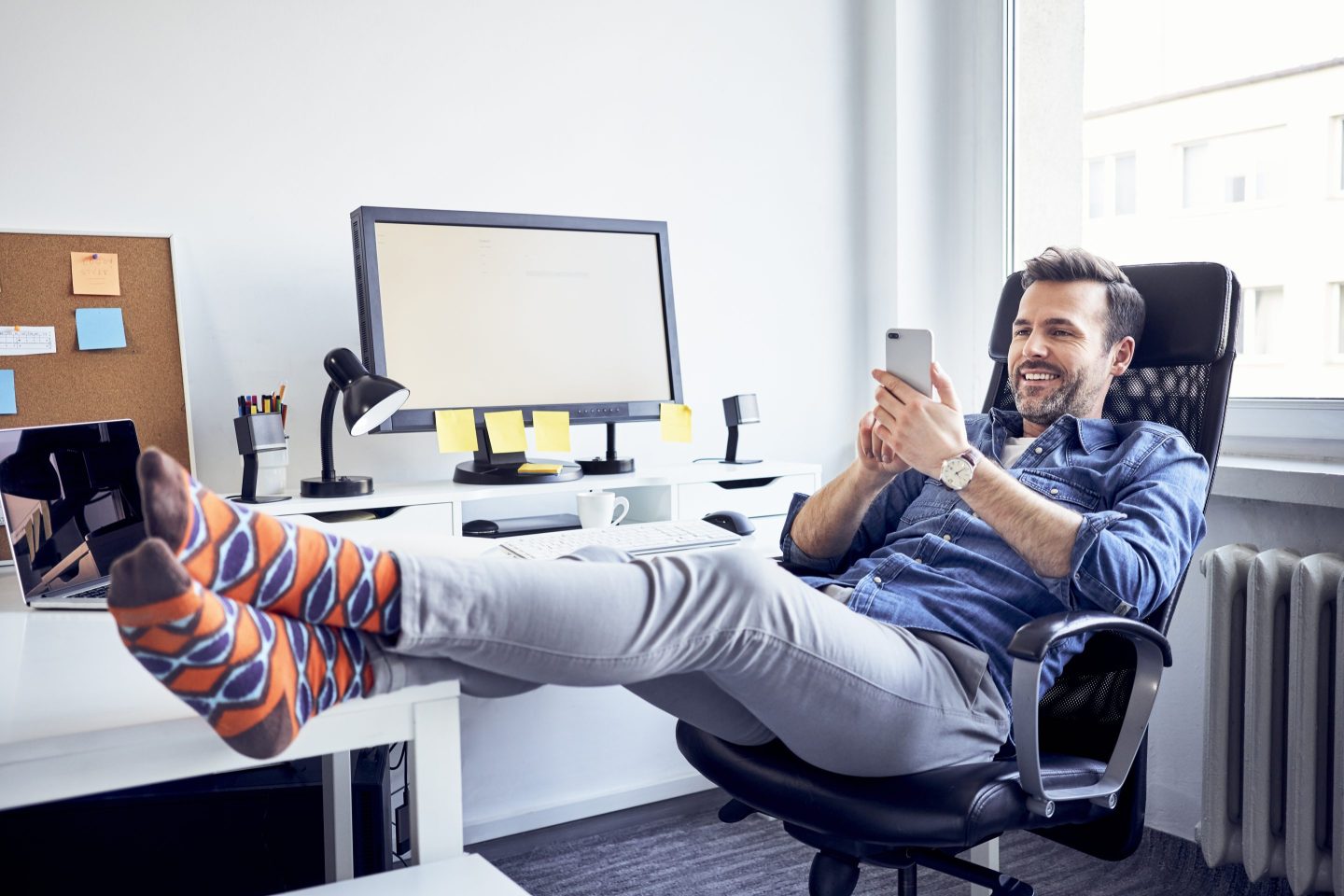- Startups are kicking off a surprising new workplace trend: no shoes in the office. From AI unicorns like Cursor and Speak to a growing number of small tech firms, employees are leaving their footwear at the door in the name of comfort, creativity, and culture. Fans say the policy makes offices feel more relaxed and collaborative, while skeptics warn it risks blurring professional boundaries—and exposes some questionable sock fashion choices.
Startups have long been known for redefining the workplace—swapping out cubicles and corner offices in favor of bean bags and coffee bars. But the latest perk sweeping Silicon Valley isn’t about seating or snacks. It’s about shoes—or, rather, the lack of them.
Cursor office got a shoe rack upgrade pic.twitter.com/QnIXFLft4j
— Ben Lang (@benln) September 3, 2025
At Cursor, a $9.9 billion AI coding company, staffer Ben Lang says he’s never worked at a startup that didn’t have a no-shoes rule: “I’ve only worked at startups that have a no-shoes in office policy,” he wrote in a viral X post that received over 1.1 million impressions.
The custom is catching on elsewhere, too: Andrew Hsu, cofounder of Speak, an OpenAI-backed AI language app valued at $1 billion, added that his team has followed the policy for years. Likewise, at the Gen Z-founded firm, Whop.
While some other companies, like Substack and Notion, have reportedly previously embraced the casual trend, the number of companies actively swapping shoes for socks and slippers has climbed to more than a dozen by Lang’s count. And it could have real benefits, such as comfort, informality, and creativity, according to Anita Williams Woolley, professor of organizational behavior at Carnegie Mellon University’s Tepper School of Business.
“In an era when anxiety is reaching epidemic proportions, creating a space where employees can experience greater comfort can bring big advantages for creativity and innovation, as well as encouraging them to develop more meaningful relationships at work that foster cohesion and commitment,” she tells Fortune.
This may especially come in handy considering Silicon Valley’s embrace of the hardcore “996” work schedule—9 a.m. to 9 p.m., six days a week—in order to stay ahead in the competitive AI world. But not everyone sees ditching shoes as a great way to boost productivity.
No shoes in the office could backfire
While not walking around the office in socks might save some time and money on cleaning the floors, breaking the social norm could also do more harm than good. Namely, that shoes do more than just add fashion to the office, Woolley says.
“The increased comfort and intimacy that could in some cases be a benefit to such a policy may also be a double-edged sword, as they may result in making important interpersonal boundaries less clear than they should be,” she adds.
The practice could create some awkward moments. As socks replace ties as the go-to work status symbol, Woolley points out it could raise hygiene or inclusion issues if not handled carefully. What feels casual for some might feel unprofessional—or even uncomfortable—for others.
Luring workers back into the office with unique perks
Eager to get a return on investment on their leases—as well as spur collaboration—companies have turned to creative office perks to lure workers back into the workplace. And while no shoes aren’t on the list of top companies, they are willing to dish out in other ways.
Walmart’s new 350-acre luxury campus in Bentonville, Arkansas is primed with swimming pools, pickleball courts, and a childcare center—plus a dozen restaurant options.
In Manhattan, JPMorgan Chase’s new 60-story skyscraper features a 19-restaurant food court, an Irish pub, and a building-wide “signature scent.” The company has mandated its work back in the office five days a week.
If you’re looking for something more creative, Epic’s 1,670-acre campus in Wisconsin features 28 fantastical theme buildings, ranging from The Wizard of Oz and Alice in Wonderland to the Harry Potter franchise.
For now, the no-shoes policy remains a quirk of small, fast-moving startups. But as companies experiment with new ways to lure employees back to the office, don’t be surprised if “business casual” soon includes socks.












